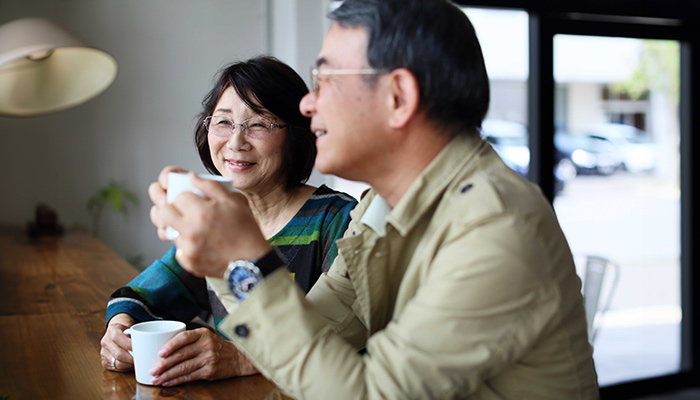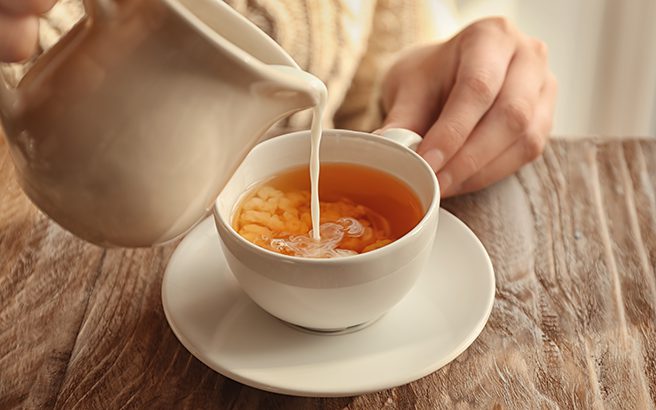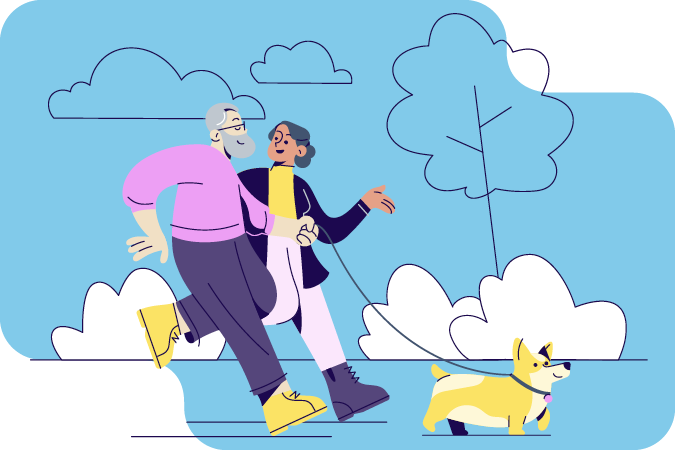Coffee, tea and cancer
Coffee and tea are among the most popular drinks in the world. Find out how they can affect your risk of developing cancer, plus evidence on drinking maté.
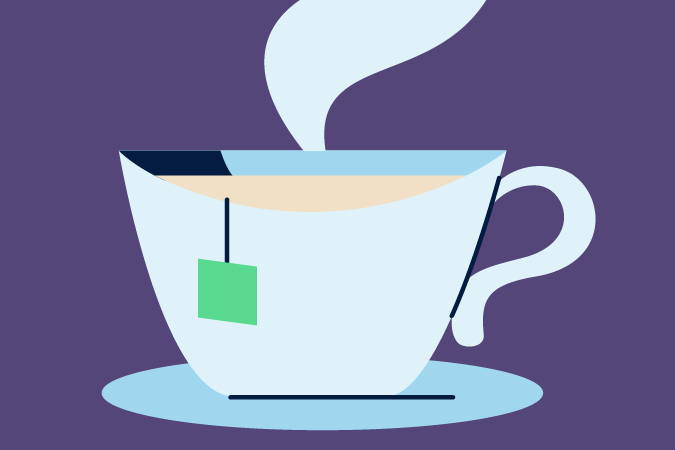
On this page
Coffee and tea contain antioxidants, some of which have been shown to lead to an environment which makes it harder for cancer to develop.
Coffee and cancer
Coffee is made from ground, roasted beans – the dried seeds of coffee plant berries. Many different qualities and varieties of coffee are available. These include arabica and robusta beans, roasted or green coffee beans, as well as instant coffee made from finely ground coffee beans.
There are also different methods of preparing coffee depending on culture and personal preference. Decaffeinated coffee tastes the same as caffeinated coffee but has most of its caffeine removed.
What is the link between coffee and cancer?
We have strong evidence that:
- Coffee reduces the risk of liver cancer
- Coffee reduces the risk of womb cancer
We have some evidence that coffee also reduces the risk of the following cancers, but the evidence isn’t as strong as for liver and womb cancer:
- mouth (see our head and neck cancer page)
- pharynx (see our head and neck cancer page
- larynx (see our head and neck cancer page)
- skin (basal cell carcinoma)
- skin malignant melanoma (women only)
What’s the science behind coffee and cancer?
Coffee has natural substances that might help protect your cells and reduce inflammation. It can also improve insulin sensitivity, which helps the body regulate blood sugar better. These factors could be how coffee affects cancer risk, but more research is needed to understand the full impact of coffee on cancer.
We don’t have a Cancer Prevention Recommendation about drinking coffee because we need more evidence. More research is needed to understand:
- How much coffee should be consumed?
- Are there risks linked to drinking too much coffee?
- Does the type and preparation method (instant, filter, ground) matter?
- Is there a difference between decaffeinated and regular coffee?
- Does adding milk affect its impact?
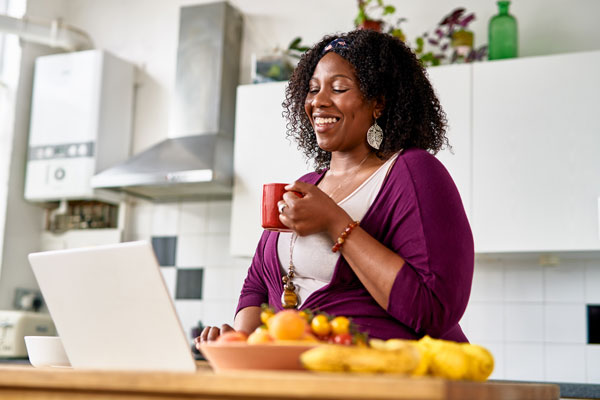
Sign up to hear more from us
Get the latest cancer research updates, tasty recipes, health tips and more
Tea and cancer
Although many herbal drinks are known as “tea”, tea is specifically dried leaves of the Camellia sinensis plant.
Green tea, often preferred in China, is made from leaves that have first been cooked, pressed and dried. To produce black tea, the fresh leaves are withered, rolled repeatedly, allowed to turn deep brown and air-dried until they are dark.
We have some evidence that drinking tea may decrease the risk of bladder cancer.
For scientists
We have funded research into how tea affects the risk of developing cancer. Read more:
> Investigating major risk factors of oesophageal cancer in north-eastern Iran
> Browse all our research projects
Maté and cancer
Maté is a type of herbal tea made from the dried leaves of the liex paraguariensis plant.
It’s traditionally drunk scalding hot (above 65°C) from a small bowl through a metal straw. Drinkers often keep the straw resting in their mouth. It is mainly drunk in South America.
- We have strong evidence that drinking scalding hot maté increases the risk of oesophageal cancer (squamous cell carcinoma).
- We have some evidence linking it to cancers of the mouth, pharynx and larynx.
Living with cancer
A recent study funded by World Cancer Research Fund found that people who have had bowel cancer and drink more than 4 cups of coffee a day may have a lower risk of the cancer coming back, compared to those who drink 2 or fewer cups. They also seem to have a lower risk of death after their diagnosis.
However, more research is needed to understand how coffee might help improve outcomes for bowel cancer patients.
Diet and Cancer Report
Our 2018 Diet and Cancer Report looked at non-alcoholic drinks including coffee, tea and maté, and cancer risk.
On the blog
For scientists
We fund research into how coffee affects the risk of developing cancer. Read more:
